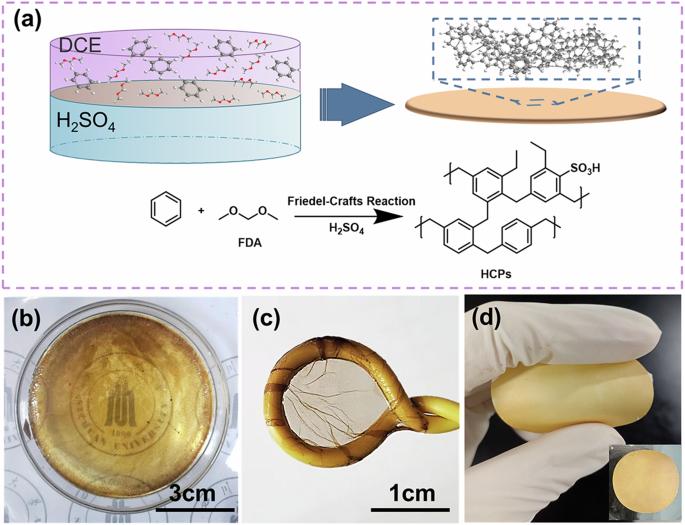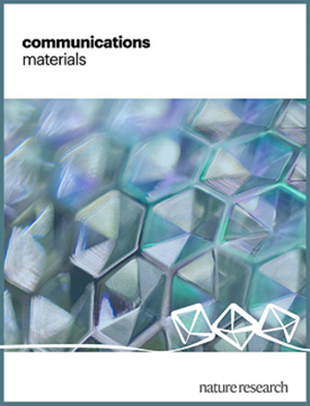Hypercrosslinked polymer membranes via interfacial polymerization for organic dye separations
IF 9.6
Q1 MATERIALS SCIENCE, MULTIDISCIPLINARY
引用次数: 0
Abstract
Hypercrosslinked polymers (HCPs) have gained attention as promising materials for separation membranes due to their abundant porosity, low cost, ease of preparation, and excellent stability. Here, we demonstrate an interfacial-assisted polymerization approach to prepare continuous HCP membranes at room temperature. The method demonstrates versatility in constructing HCP membranes using various precursors, including small molecules and polymers. Specifically, the HCP membranes prepared using benzene as the monomer exhibit controllable thickness and a remarkable Brunauer-Emmett-Teller surface area of up to 855 m2 g−1. Leveraging physical size sieving and electrostatic interaction, the fabricated benzene-based membranes effectively reject small anionic dye molecules, such as Congo Red, Acid Fuchsin, and Methyl Orange, achieving rejection rates exceeding 93% while maintaining a high-water flux of up to 55 L m−2 h−1 bar−1. This study shows a versatile approach for the design of HCP membranes capable of efficiently separating mixtures containing small molecules. Hypercrosslinked polymers are promising materials for separation membranes due to their low cost and high porosity. Here, continuous hypercrosslinked polymer membranes are prepared using interfacial polymerization that effectively rejects small dye molecules with high water flux.

用于有机染料分离的界面聚合超交联聚合物膜
超交联聚合物(HCP)因其丰富的孔隙率、低成本、易制备和出色的稳定性,作为一种有前途的分离膜材料而备受关注。在此,我们展示了一种在室温下制备连续 HCP 膜的界面辅助聚合方法。该方法展示了使用各种前体(包括小分子和聚合物)构建 HCP 膜的多功能性。具体来说,以苯为单体制备的 HCP 膜具有可控的厚度和高达 855 m2 g-1 的显著布鲁瑙尔-艾美特-泰勒表面积。利用物理尺寸筛分和静电作用,制备的苯基膜可有效阻隔刚果红、酸性品红和甲基橙等阴离子染料小分子,阻隔率超过 93%,同时保持高达 55 L m-2 h-1 bar-1 的高水流量。这项研究展示了一种设计 HCP 膜的多功能方法,这种膜能够有效分离含有小分子的混合物。超交联聚合物成本低、孔隙率高,是一种很有前景的分离膜材料。本文利用界面聚合法制备了连续超交联聚合物膜,它能以高水通量有效析出小分子染料。
本文章由计算机程序翻译,如有差异,请以英文原文为准。
求助全文
约1分钟内获得全文
求助全文
来源期刊

Communications Materials
MATERIALS SCIENCE, MULTIDISCIPLINARY-
CiteScore
12.10
自引率
1.30%
发文量
85
审稿时长
17 weeks
期刊介绍:
Communications Materials, a selective open access journal within Nature Portfolio, is dedicated to publishing top-tier research, reviews, and commentary across all facets of materials science. The journal showcases significant advancements in specialized research areas, encompassing both fundamental and applied studies. Serving as an open access option for materials sciences, Communications Materials applies less stringent criteria for impact and significance compared to Nature-branded journals, including Nature Communications.
 求助内容:
求助内容: 应助结果提醒方式:
应助结果提醒方式:


